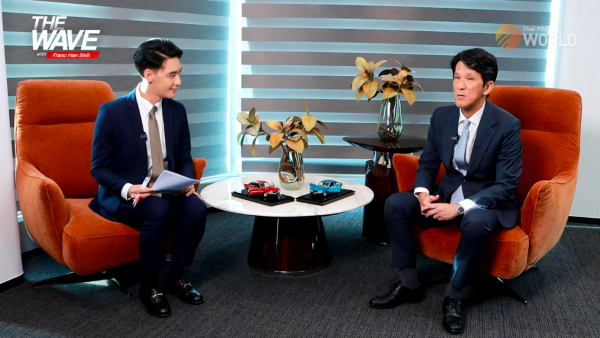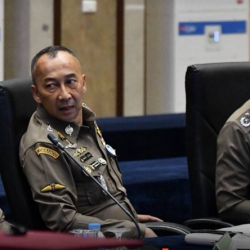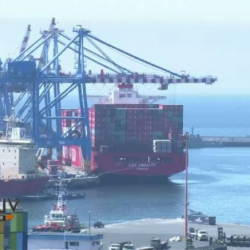Consistent policies and effective communication crucial for Japanese investors

As a new Thai government is taking shape under the leadership of Prime Minister Srettha Thavisin, the Japanese business sector, which plays a crucial role in Thailand’s economy, looks forward to seeing consistency and open communication in the economic policy of the incoming administration.
In an exclusive interview with Thai PBS World, President of the Japanese Chamber of Commerce, Bangkok, (JCC), Noriaki Yamashita, emphasised the importance of Japan’s presence, as foreign direct investment from Japan accounts for 30% of the capital invested in Thailand in past five years, adding that the collaboration between two countries should continue moving forward.
As Srettha officially becomes Thailand’s 30th Prime Minister, Yamashita said that the new government should communicate with investors before executing any policy which might affect their confidence.
“Sustainability and continuity of economic policies are important. We do not hope for drastic changes, for example the rise in the minimum wage. We do hope to see a steady increase in wages. We also hope that the new government’s policies will maintain stability and continuity without drastic change. In the past, when government reviewed policies, including minimum wages, they had a dialogue with us, in order to design the measures while considering the realities and needs. We also hope that the new government will continue to hear our voices.”
Yamashita mentioned the Board of Investment (BOI), a Thai government body tasked with promoting foreign direct investment, as being a leading force in deepening Thai-Japanese commercial partnerships. BOI initiatives relating to sustainability have shaped Japan’s strategy in Thailand.
“In recent years, the Bio-Circular-Green policy has been promoted in Thailand, leading the ASEAN region. We are encouraged by these commitments and initiatives. For example, if incentives for carbon neutrality are provided, it would encourage foreign investors to introduce new technologies. The promotion of liberalisation in electricity trading could be a trigger to develop and utilise more renewable energy.”
Thailand holds a critical place in ASEAN. It is a major industrial hub in the region, becoming a global centre for innovation and new technologies. The Thai government has been promoting high-value-added industries, to make the economy more resilient, sustainable and attractive, as the manufacturing sector was hit hard by the halt in global trade caused by the pandemic. It has been slowly recovering since, but the crisis exposed the sector’s systemic vulnerabilities. Thailand’s top investor wishes to help usher in that transition.

“To help it, we would suggest re-evaluation or relaxation of current regulations related to foreign workers, such as the employment ratio of 4 Thai employees to 1 foreigner, so that we could bring highly skilled talent from Japan, as a short-term measure. Most importantly, we would like the new government to secure the continuation of and consistency in policies, such as supporting the existing supply chain and enhancing export competitiveness. On top of this, continuous dialogue with us is highly desirable and appreciated.”
The President of the JCC wants the next government to maintain the stability and continuity of economic policies, which have created an environment suitable for investment.
“Despite political changes in the past, Thailand’s investment promotion framework, led by the BOI and others, has allowed Japanese companies to expand their investments stably.
While Thailand’s tourism industry is recovering, other key sectors are doing so slowly. Yamashita stated that relevant initiatives, which catalyse economic growth, should be considered as a priority.
“With the recovery of tourism, we recognise that the service sector is improving. The recovery of the manufacturing sector is, however, still slow. High household debt, the high cost of living and rising interest rates lead to weakened purchasing power in Thailand. Exports are also struggling, because the global economy is still fragile. The economic growth is still uncertain and we cannot be optimistic.’’
By Aymen Belkadi and Franc Han Shih






